I'm using angular 8 and here's my code.
export class AppComponent {
public auth2: gapi.auth2.GoogleAuth = null;
public signInStatus: string = "Unknown";
constructor(private zone: NgZone, private httpClient: HttpClient) {}
public ngAfterViewInit() {
this.googleInit();
}
public googleInit() {
// gapi javascript library is loaded in index.html file using
// <script src="https://apis.google.com/js/client:platform.js"></script>
// here I just use it
gapi.load('auth2', () => {
this.auth2 = gapi.auth2.init({
client_id: '2xxxxxp.apps.googleusercontent.com',
cookiepolicy: 'single_host_origin',
scope: 'profile'
});
this.auth2.then( (googleAuth: gapi.auth2.GoogleAuth) => {
let isSignedIn: boolean = googleAuth.isSignedIn.get();
// if I use here debugger; then this referes to AppComponent
// I come from javascript world, where 'this' refers to current scope
// why does 'this' refere to AppComponent here?
this.updateSignInStatus(isSignedIn);
}, onFailure => {
console.log("Initialization failed");
});
});
}
public updateSignInStatus(signedIn: boolean) {
this.zone.run(() => {
debugger;
// I though that 'this' here referes to current scope which
// is anonymous function. The same question as below
this.signInStatus = signedIn ? "Yes" : "No";
});
}
I want to understand why 'this' in anonymous functions refers to AppComponent. What have I missed. Perhaps some links to documentation.
